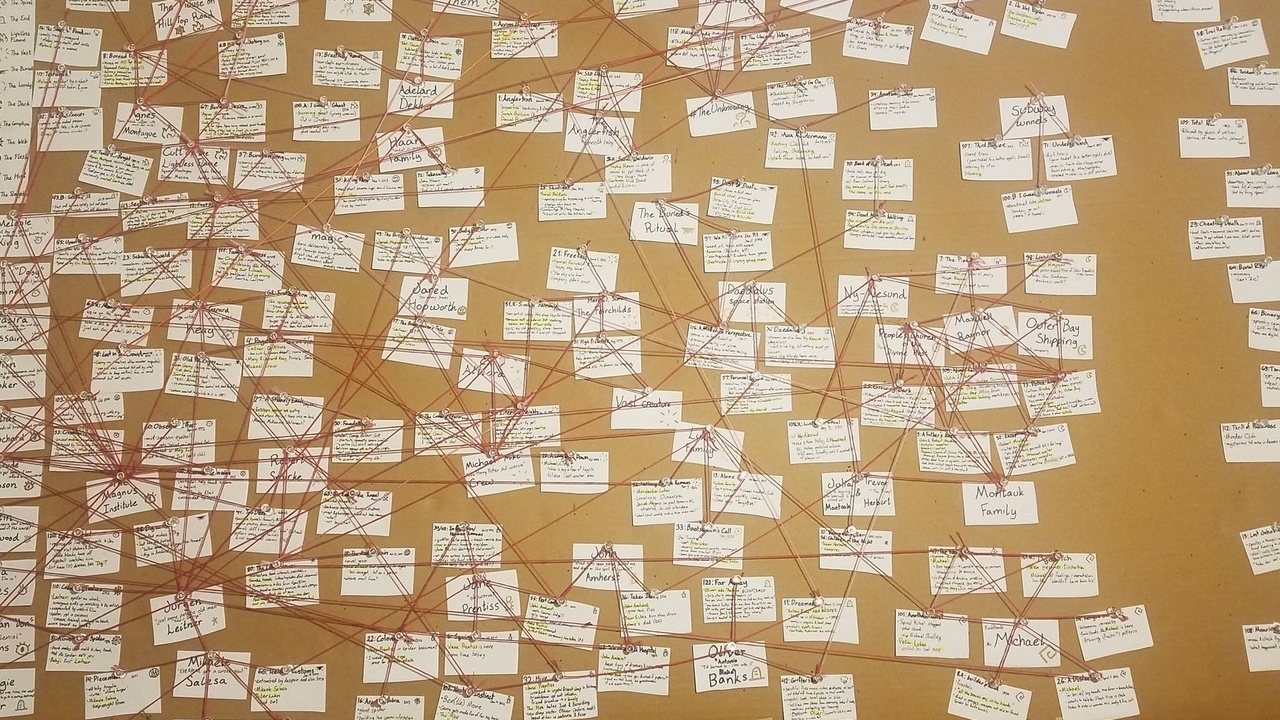KLEMP INSIGHTS
NEWSLETTER
Stop Trauma Dumping in Your Relationship (Do This Instead)

Has this ever happened to you?
You say: “Hey, how’s it going?”
The other person says: “Everything’s a total shit show. I spend literally all day Ubering my kids around. I'm in the car so much that I feel like I'm 90. I've got sciatica, this weird rash on my stomach, and my left eye has started twitching every time I feel stressed."
You didn't ask for it. But there it is: a good-old fashioned emotional rant.
This other person might be your friend, your parent, your sibling, your coworker...
Tired of Arguing? Shift Your Conflict Mindset in Your Relationship

Think back to the last big argument you had with your partner.
See if you can remember what it was about.
Now go one level deeper: What was your mindset in that moment—the background atmosphere of emotions, thoughts, and beliefs?
We're guessing it sounded something like: “This sucks. How are we arguing about the same stupid thing again? Why are we always fighting? Why can’t we be more like that other couple? Is something wrong with us? Is this even going to work?”
Let's call this The Co...
The Vast Conspiracy Against Date Night in Marriage

We're sorry to be the ones to bring you this news. But this is a hard truth you need to hear.
There is a vast, worldwide, conspiracy afoot against you and your partner ever going on another date night.
Your kids are in on it. They'll do just about anything to interrupt that dinner out you had planned for a Thursday night. They'll get in trouble at school. They’ll break their arm. They’ll get a stomach flu. They might even orchestrate a massive fight between siblings at the very moment of yo...
Stop Talking About the Weather in Marriage (Talk About This Instead)

Here's one way to talk to your partner. You reveal the full truth of your experience, your little victories, your hopes and dreams, and even the things that scare you.
Here's another way to talk to your partner. You become like news anchors reporting on the latest events.
“It sure is cold outside, isn’t it?” you say.
“I was back-to-back with meetings at work all day,” says your partner.
“The line at Costco was insane,” you report.
We have a name for these conversations: "talking abou...
The Trap of "Just This Once" Thinking in Relationships

Here’s a sneaky mind virus that took us almost 20 years of marriage to notice.
We call it the “just this once” trap.
This is how it works.
Life is already a circus. You’ve got work, kids, in-laws, and about a thousand other responsibilities all screaming for your attention. The last thing you should do? Add more.
But that’s when the trap springs.
A college buddy texts you that they're in town.
A coworker ropes you into their Jamaican destination wedding.
Your parents guilt you into vis...
Is the Fridge Full? What Makes You Feel Safe?

We have a morbid running joke in our house: in a past lifetime, Nate almost certainly died of starvation.
Why?
Because the moment the fridge starts to look even slightly empty, he gets nervous: “What are we going to do? There’s no food!”
On one level, this is just a food supply issue—easily solved by a trip to the grocery store.
But on another level, it’s about emotional safety. You see, the sight of our bare fridge makes Nate feel uneasy, and that unease ripples into the emotional he...
The Case for Couples Ditch Day in Marriage

Spring 1997.
Dave Matthews Band was peaking in popularity. The Backstreet Boys were just arriving on the scene. And the two of us were finishing our senior year of high school.
In a bold collective act of defiance, the two of us, along with four hundred or so of our peers, participated in the time-honored tradition of “Senior Ditch Day." Instead of going to school, we loaded onto buses and watched an afternoon Colorado Rockies baseball game.
It was our way of saying, “We’re tired of bein...
Try Out This Summer Family Vacation Hack

Summer family vacations are a time of connection, joy, and fun.
They're also often the emotional equivalent of running an ultra-marathon or completing a full Ironman Triathlon.
Why?
During an ordinary workday, we have built-in breaks from each other. We go to school, go to meetings, check our email, or run errands around town alone.
During a day on vacation, however, this sprint-and-recover world of breaks flips upside down. We wake up, together. We eat, together. We drive long distances ...
How to Keep Less Significant Others (LSOs) from Wrecking Your Relationship

Want to pick an epic fight with your partner?
Just do this. Take your mom’s side rather than their side in an argument.
Or this. Ditch them for a night out with your friends.
Or this. Cancel on them at the last minute so that you can join a Zoom meeting with your boss.
We’re not actually suggesting that you pick this massive fight. That would be crazy. We’re just highlighting an accidental habit that lives in the background of most relationships.
What’s the habit?
Prioritizing ot...
You've Got Emotional Debt -- Here's How to Pay it Off

When it comes to money, we all understand the concept of debt. If you spend more than you have, at some point, you’re going to have to pay it back, with interest.
But what about emotions?
What happens when you spend more energy than you have by trying to push your emotions away through busyness and distraction?
The answer: you take on “emotional debt."
We noticed this happening in our marriage a couple months ago. We were both navigating intense situations that gave rise to intense emoti...

